eSports
Fnatic and ChopValue Announce Release of Carbon-negative Gaming Desks Made from Recycled Chopsticks
Fnatic and global, circular economy franchise ChopValue have partnered to create limited-edition, carbon-negative REVIVE gaming desks, each desk consisting of up to 9565 recycled chopsticks.
This partnership aims to deliver the world’s most sustainable gaming desk to the public, to offset the carbon footprint generated by esports.
By taking what many others may view as waste, ChopValue and Fnatic are breathing new life into a natural and under-utilised resource.
Their joint mission is to recycle 10 million chopsticks through the REVIVE desk series and set a new standard in making sustainable, performance-grade gaming furniture.
The desks are handcrafted and customised with care locally through a network of global Microfactories. This enables ChopValue to collect resources, manufacture products and deliver to the end customer locally to minimise the collective carbon footprint.
eSports
Oddin.gg has entered into an exclusive multi-year data partnership with premier esports tournament organizer, PGL
Building on the exceptional viewership of the PGL Major Copenhagen, which ascended to the third-most watched event in Counter-Strike history, PGL and Oddin.gg have agreed their strategic alliance through a substantive multi-year agreement.
This extension reinforces Oddin.gg’s position as the exclusive provider of Data & Integrity services for PGL’s premium Dota 2 and Counter-Strike 2 events, underscoring Oddin.gg’s ascendancy as a pivotal force in the esports official data sphere.
The scale and caliber of esports content under this partnership have catapulted Oddin.gg to the forefront as a major data authority. The success of this collaboration is a testament to the synergy between Oddin.gg and one of the most impactful tournament organizers in the competitive gaming arena.
The extended multi-year pact encompasses a minimum of eight Dota 2 headline events along with a minimum of eleven Tier 1 Counter-Strike 2 tournaments. These competitions will feature the elite of global teams, competing for prize pools of at least USD 1 million each, promising to further elevate the profile of this flourishing partnership.
Marek Suchar, Co-founder & Managing Director of Partnerships at Oddin.gg, enthusiastically speaks on the extended partnership: “Our commitment is to affiliate with the premier entities in esports, and PGL stands out as a peak of excellence within the tournament circuit.
Their team has masterfully orchestrated the top three most-watched Counter-Strike and the two most-watched Dota 2 tournaments in history. With the dynamic evolution expected in 2025, we are both excited and privileged to align with PGL’s visionary path for the esports community to support, protect and entertain esports fans. This partnership is a strategic step towards enhancing the global esports experience, and we eagerly anticipate the groundbreaking advancements PGL will introduce for Counter-Strike 2 and Dota 2 in the years ahead.”
Silviu Stroie, CEO of PGL, shares his perspective on the alliance’s growth: “At PGL, our core mission is to craft the ultimate esports experience on a global scale. Independence, innovation, and integrity are the pillars we stand on, promoting fairness and sustainability within the esports world. In Oddin.gg, we’ve found an ally that resonates with our ethos, making them the ideal partner as we forge ahead. Our ongoing partnership solidified through a multi-year contract, echoes our mutual commitment to the community of esports. With Oddin.gg’s unmatched data and integrity expertise, we’re elevating our tournaments beyond mere excitement to meet the highest benchmarks of fairness. United, we are on a quest to curate unrivaled esports events, propelling this dynamic industry toward a vibrant and thrilling future.”
The renewed alliance with Oddin.gg arrives at a transformative juncture for PGL, marking a significant expansion in their annual event roster. This strategic development is timed with the enactment of new regulations starting January 1st, 2025, which mandate the separation of tournament organizers from teams. These guidelines are set to foster a more competitive and varied landscape for Counter-Strike 2 tournaments, ensuring a level playing field and circumventing any potential conflicts of interest.
This partnership renewal covering 2024 to 2026 underscores the commitment to these principles, promising an array of thrilling competitive spectacles in the years to come. It signals a fresh epoch for PGL events, championed by the upcoming Wallachia tournament in May 2024, which will serve as the inaugural event under this new agreement. The Wallachia event is just the beginning, heralding a series of tournaments designed to captivate the global audience with unparalleled competitive narratives and a showcase of elite talent, reinforcing PGL’s status as a trailblazer in the esports domain.
The post Oddin.gg has entered into an exclusive multi-year data partnership with premier esports tournament organizer, PGL appeared first on European Gaming Industry News.
eSports
DATA.BET offers streaming videos collaborating with Bayes Esports

The provider is reshaping esports content distribution with its new Bayes Esports video streams
DATA.BET, a reliable supplier of esports betting solutions, now delivers a tool that elevates the viewing experience on operators’ platforms in collaboration with Bayes Esports, the leading supplier of official esports live data, services, and products.
The introduction of video streams from a trusted source represents a significant step in addressing the challenges in content distribution for popular disciplines, such as CS2 and Dota 2. Approximately 90-97% of esports events are broadcasted through Twitch. However, the platform generally has delays that can reach up to 2 minutes, equal to a round in CS2, leading to an outdated viewing experience.
“Our live streams with reduced latency mark a significant milestone in esports betting development,” stated Alex Kozachenko, Chief Product Officer at DATA.BET. “In a strong partnership with Bayes Esports, we deliver our clients and their users a faster, more reliable alternative to conventional streaming platforms, ensuring an immersive and authentic viewing experience.”
Bayes Esports’ video streams offer a solution for minimizing delays by providing official broadcasts directly from tournament organizers, serving as a “source of truth” for esports streaming content. The integration of this streaming feature also presents new opportunities for operators to increase retention and enhance their services by incorporating branding and marketing campaigns directly into the streams.
“Our partnership with DATA.BET unlocks new avenues for platform engagement,” commented Amir Mirzaee, CCO and Managing Director of Bayes Esports. “In an industry where user satisfaction is essential, providing operators access to high-quality, low-delay tournament broadcasts is a game-changer. It enables them to provide unique content and enhance the overall betting experience, fostering deeper connections with their audience and driving sustained growth. Official, low delay video feeds are a sure way to identify the respective official data offerings for users and a way to make sure that their engagement benefits the esports ecosystem.”
The post DATA.BET offers streaming videos collaborating with Bayes Esports appeared first on European Gaming Industry News.
eSports
TEAM VITALITY TO SET FIRE TO THE TEKKEN 8 SCENE WITH SOUTH KOREAN PLAYER JEONDDING
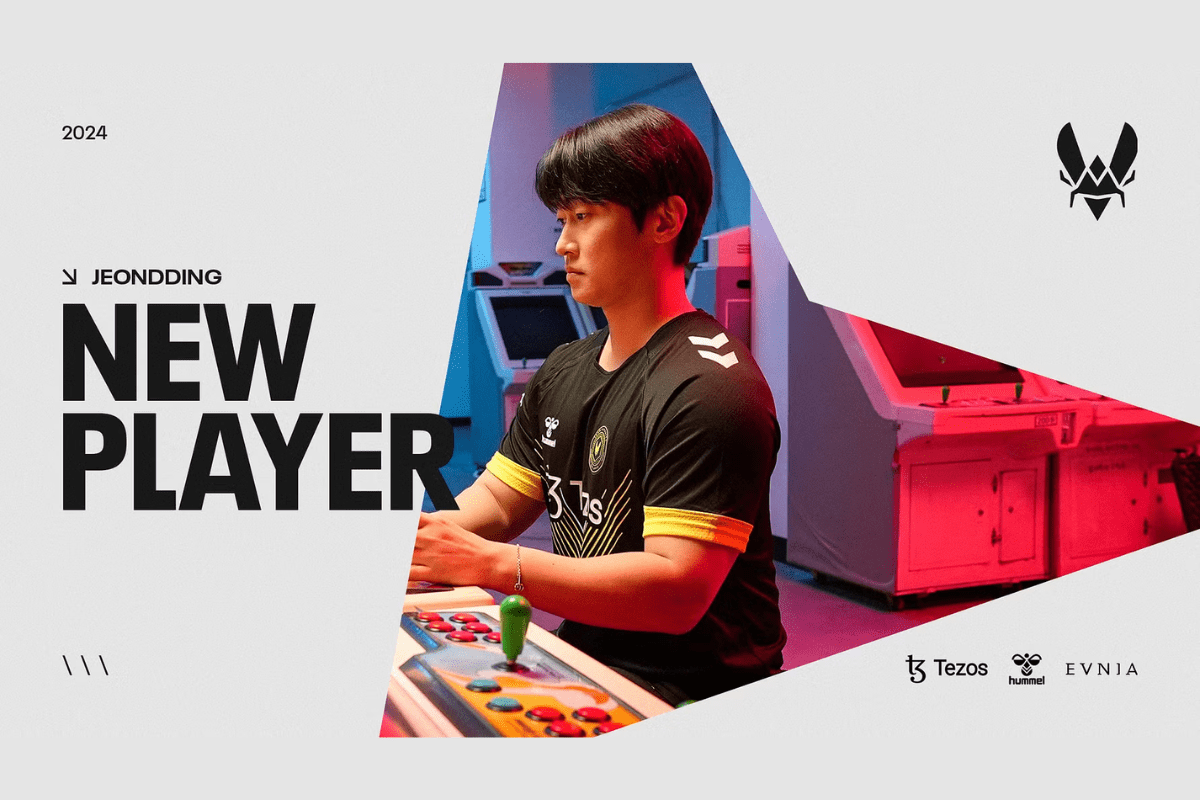
Team Vitality, Europe’s leading esports organisation, is back on the fighting game scene with the latest instalment of the famous franchise TEKKEN. Following the release of the eighth edition of the renowned game earlier this year, the French club now welcomes TEKKEN 8 player “Jeondding” to the hive. This expansion strengthens the organisation’s presence in South Korea, reaching a new milestone on its mission to dominate the international stage.
JEONDDING MAKES DEBUT WITH TEAM VITALITY AT EVO JAPAN 2024
Jeon “Jeondding” Sanghyeon stands as a formidable player in the competitive TEKKEN 8 scene, boasting several successes and titles to his name. Recently, Jeondding ranked amongst the top two players in the Tekken 7 World Tour Grand Finals 2022 and top eight in 2023. His dominance also extends beyond the global stage, as in the same year, he emerged as the champion in both the VSFighting XI 2023 and CEO 2023 tournaments.
Recognised for his distinctive gameplay style, Jeondding has become widely known for his mastery of often overlooked characters in competitive play, such as ‘Eddy Gordo’. His ability to excel with these characters has earned him esteemed recognition within the fighting game community. Jeondding will continue to showcase his skills with ‘Eddy Gordo’ as he represents Team Vitality at EVO Japan, marking his debut on the international stage with the team from April 27th to 29th.
Beyond his skill, Jeondding’s charm shines through in LAN events. His charismatic presence strikes a perfect balance between competitive performance and entertainment, engaging fans worldwide. A passionate sports fan himself, Jeondding recognises the power of fans, electrifying the atmosphere wherever he competes!
“When I first got contacted by Team Vitality, I couldn’t believe it! I wondered if I could join a huge team like this, and now that dream has come true. While exchanging with the organisation, I started to get to know more and more about the identity of the club, watching their videos on their YouTube channel, their trophees… and it gave me goosebumps. I want to grow with this club, continue to be a great player and bring new titles on Tekken 8 for Team Vitality!” explains Jeon “Jeondding” Sanghyeon
REACHING A NEW MILESTONE ON THE INTERNATIONAL SCENE BEFORE ESPORTS WORLD CUP
With the latest addition of Tekken 8, Team Vitality expands its competitive game titles to eight, along with ten rosters across male and female esports circuits under its banner. This addition not only solidifies the French club’s foothold in South Korea but also marks the organisation’s return to the fighting game community. Jeondding’s participation in key international events further strengthens Team Vitality’s commitment to tackling the global esports scene, with appearances slated for TEKKEN 8 tournaments at EVO Japan, Evo and CEO.
“I’m thrilled to announce our return to the fighting game scene with TEKKEN 8. We’re especially excited to debut alongside the highly respected and renowned player Jeondding. With this title, we hope to expand Team Vitality’s fan base as we embrace the passionate fighting game community! This new game also strengthens our presence overseas, adding enormous value to Team Vitality’s journey towards international domination.“ explains Fabien “Neo” Devide, Co-founder and President of Team Vitality.
Team Vitality’s international expansion is accelerated by the multiplication of top-level international competitions, including the much-anticipated Esports World Cup in the summer of 2024. Tekken’s welcome to the Team Vitality teams marks the first part of the announcements linked to this competition. With its performance-based DNA, Team Vitality is adding another string to its bow to win new titles on the international scene.
The post TEAM VITALITY TO SET FIRE TO THE TEKKEN 8 SCENE WITH SOUTH KOREAN PLAYER JEONDDING appeared first on European Gaming Industry News.
-

 Australia4 weeks ago
Australia4 weeks agoCrown Approved to Retain its Melbourne Licence
-
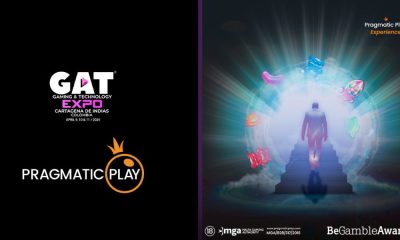
 GAT Expo4 weeks ago
GAT Expo4 weeks agoPragmatic Play Prepares for GAT Cartagena Gaming Week 2024
-
Australia3 weeks ago
VGCCC Fines Bookmaker MintBet $100,000 for Repeat Breaches of its Responsible Gambling Code of Conduct
-
Africa2 weeks ago
BMM Testlabs Continues Its Expansion in Africa with New Licenses in Botswana and Nigeria to Test Land-Based and Digital Products
-
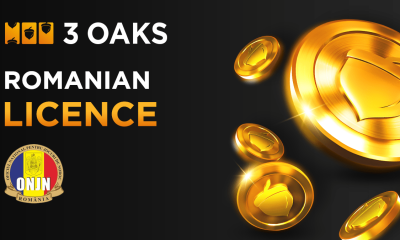
 Compliance Updates3 weeks ago
Compliance Updates3 weeks ago3 Oaks Gaming extends European reach with Romania licence
-
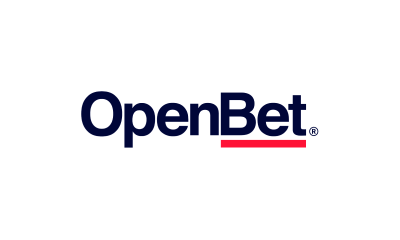
 Press Releases1 week ago
Press Releases1 week agoOpenBet Powers Record-Breaking 100,000+ Peak Bets per Minute at Grand National 2024
-
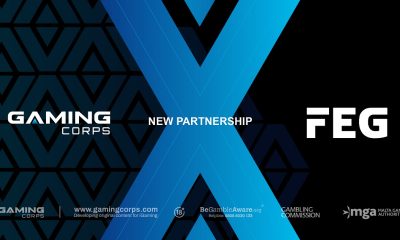
 Central Europe3 weeks ago
Central Europe3 weeks agoGaming Corps makes key European addition with Fortuna Entertainment Group partnership
-

 Africa3 weeks ago
Africa3 weeks agoIESF African Regional Qualifiers Host Announced




